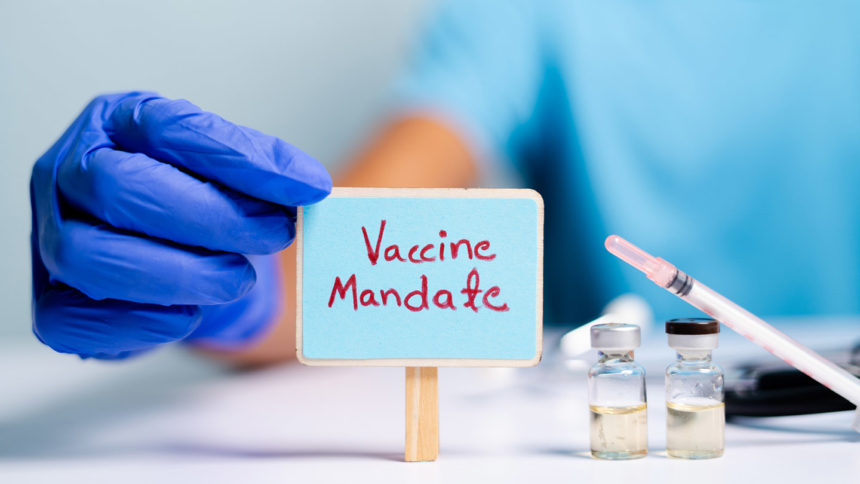
State COVID-19 vaccination mandates increased vaccinations among direct caregivers without negatively affecting staffing levels, according to the results of a study published Friday in JAMA Health Forum.
The researchers studied vaccination rates and staffing shortages that were reported via the Center for Disease Control and Prevention’s National Healthcare Safety Network from June 6, 2021, through Nov. 14, 2021. They looked specifically at nursing home changes in weekly staff vaccination rates and reported staffing shortages.
The investigators examined data from 38 states where data were available. They found that 26 of those states had no COVID-19 vaccine mandates for nursing home employees, four had mandates with a test-out option, and eight had mandates with no test-out option.
Ten weeks into the study period, nursing homes in states with mandates but no test-out option saw a 6.9 percentage point increase in staff vaccination coverage, whereas nursing homes in mandate states with a test-out option had a 3.1 percentage point increase in staff vaccinations compared with facilities in states without a mandate.
The researchers found no significant increases in reported staffing shortages in states with mandates, regardless of whether a test-out option existed.
“The biggest concern with imposing vaccine mandates for nursing home employees is the potential for large numbers of staff to leave the workforce rather than be vaccinated. For example, when a nursing home in Philadelphia required staff to be vaccinated, 17 (6.9%) of the facility’s 246 employees chose to resign,” the authors noted.
The study showed the Philadelphia numbers to be an anomaly. Overwhelmingly, researchers found, state mandates increased staff vaccine coverage without any reported increase in staffing shortages.
The findings show, however, that “state mandates for booster doses may be warranted to improve and sustain vaccination coverage in nursing homes,” they concluded.
The researchers were from Harvard Medical School-affiliated senior living and care provider Hebrew SeniorLife in Boston, Harvard Medical School, Brown University School of Public Health, the University of Rochester Medical Center and the University of California, Los Angeles.




